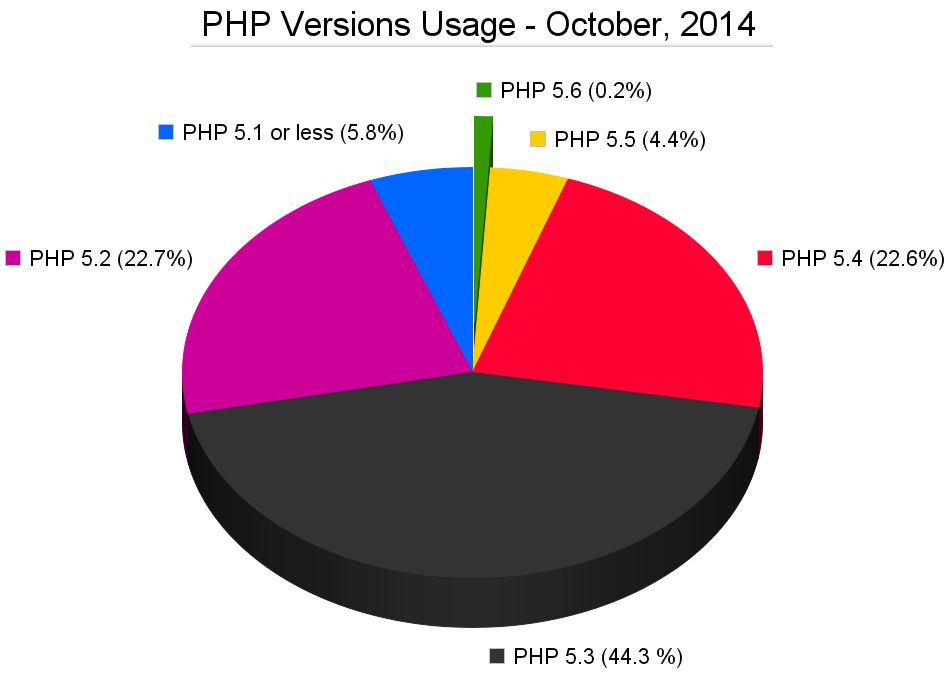Supported PHP versions provides some insights on which version you should pick for your project.
Currently, the recommended version of PHP to use is the latest PHP 7, but the statistic of PHP version usage on servers is kind of shocking.
Thanks to the research of PHP version usage, we have some data to work with. The majority of PHP servers still have PHP 5.3 installed, and old versions of PHP 5.2, although less so, are still also used.

PHP 5.3 reached EoL (End of Life) in August 2014, and PHP 5.5 reached EoL (End of Life) in July 2016. For more information about unsupported EoL PHP versions, visit PHP.net unsupported branches.
PHP 5.6.0 currently has active support, but that will expire in December 2017.
Having wide availability of the software is important for open source projects. Increasing minimum version requirement is in many cases a delicate issue, but more and more projects are requiring more or less the latest versions already. Enforcing later versions is a good thing to encourage users to upgrade the PHP used on their servers.
composer.json files to newer PHP
versions.